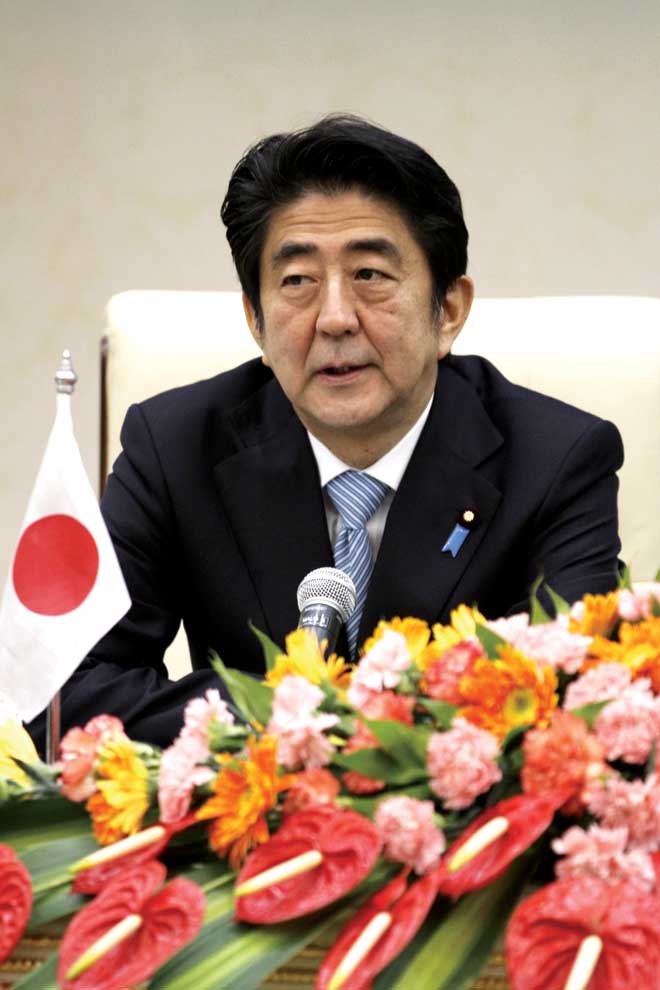
After the Japanese economy experienced recession and deflation for years, current Prime Minister Shinzo Abe, launched an aggressive new economic strategy as a way to kick start the economy. Dubbed “Abenomics”, the plan is defined by three “arrows”: fiscal stimulus, monetary easing and structural reform. Etsuro Honda, special adviser to the Cabinet, recently sat down in Tokyo with Kay Kimsong, editor-in-chief of the Post’s Khmer-language edition to discuss the likelihood of Abenomics’ success.

Japanese Prime Minister Shinzo Abe. Photo Supplied
How confident are you in the Abenomics policy?
I am completely confident, because we have a very good leader. Just a few years ago, it seemed we changed prime ministers every year. Right now, the prime minister is enjoying a very high approval rating. He is still young and has implemented a lot of positive reforms. Basically, the public supports him. Through his policies, wages have increased. There are now signs of hope for the future for millions of people.
How long will monetary easing continue? What is your prediction of growth?
Well, the governor of Japan bank said monetary easing will end within two years. Once we get inflation going, we should be able to reach 2 per cent growth, which is what major economies consider stable.But increasing inflation is not enough. We also need increased wages. We started with a shortage of labour. A shortage of labour means low unemployment; low unemployment leads to an increase in real wages. By next summer, the inflation rate will be 2 per cent and will stay there for a bit longer. In order to maintain 2 per cent we have to watch closely for six or 10 months to see how the economy is responding. The growth rate now of 0.5 percent is very low. We are seeing the potential growth rate using economic policy. So in the short-term, we are aiming to reach a GDP rate of 2 per cent or more with an inflation rate of 1 per cent to 2 per cent. We see stemming from this consistent growth of 2 per cent to 3 per cent annually.
If Abenomics were to not work as expected, is there a plan B?
One thing we know for sure is that deflation is incredibly dangerous. So long as we can control that, we will ensure a certain amount of success. Abe’s strategy involves doing many things at once. Some things may not work out. But we have to try, and we will revise and tweak our policies every year.
Contact PhnomPenh Post for full article
Post Media Co LtdThe Elements Condominium, Level 7
Hun Sen Boulevard
Phum Tuol Roka III
Sangkat Chak Angre Krom, Khan Meanchey
12353 Phnom Penh
Cambodia
Telegram: 092 555 741
Email: [email protected]









